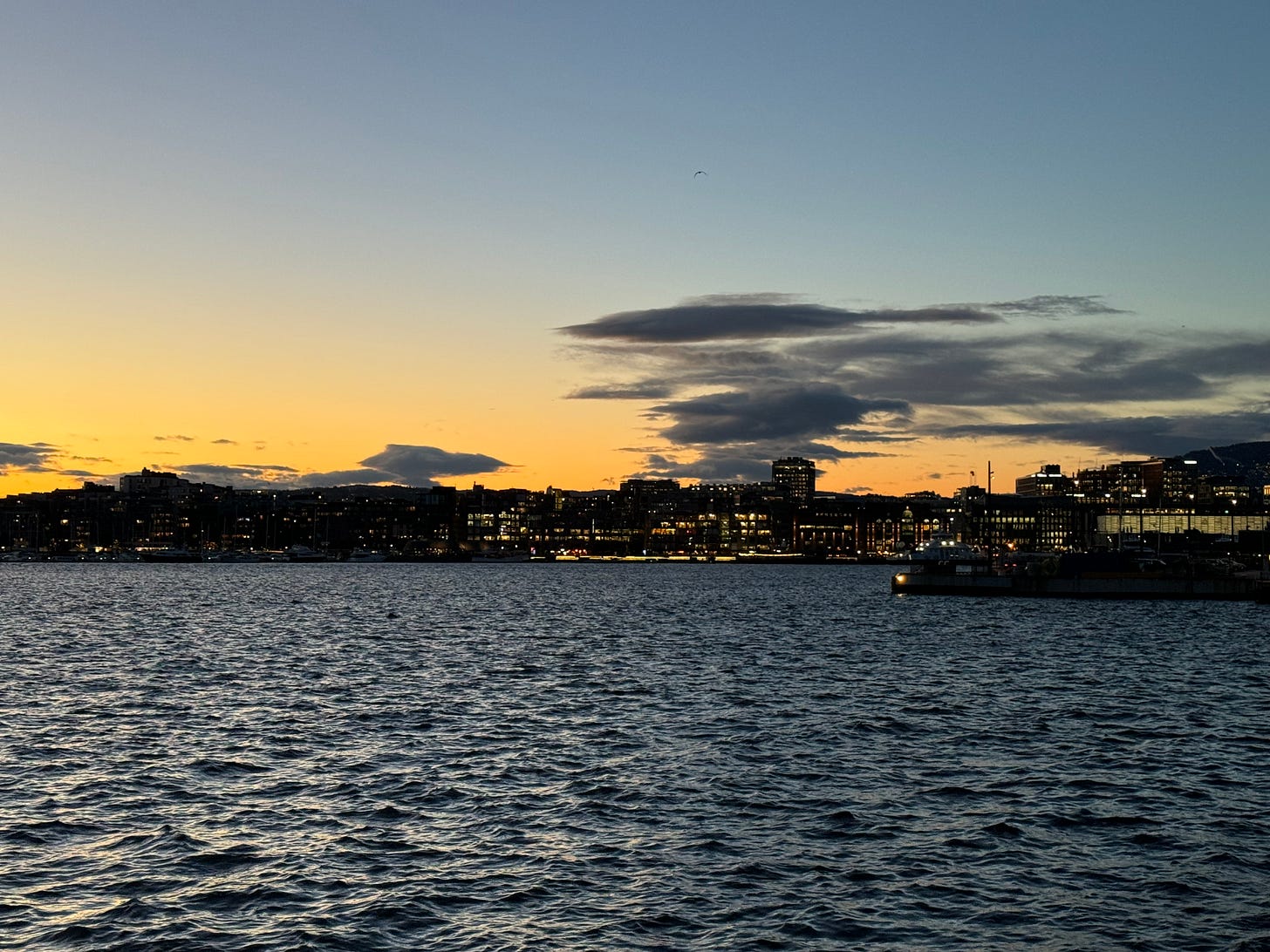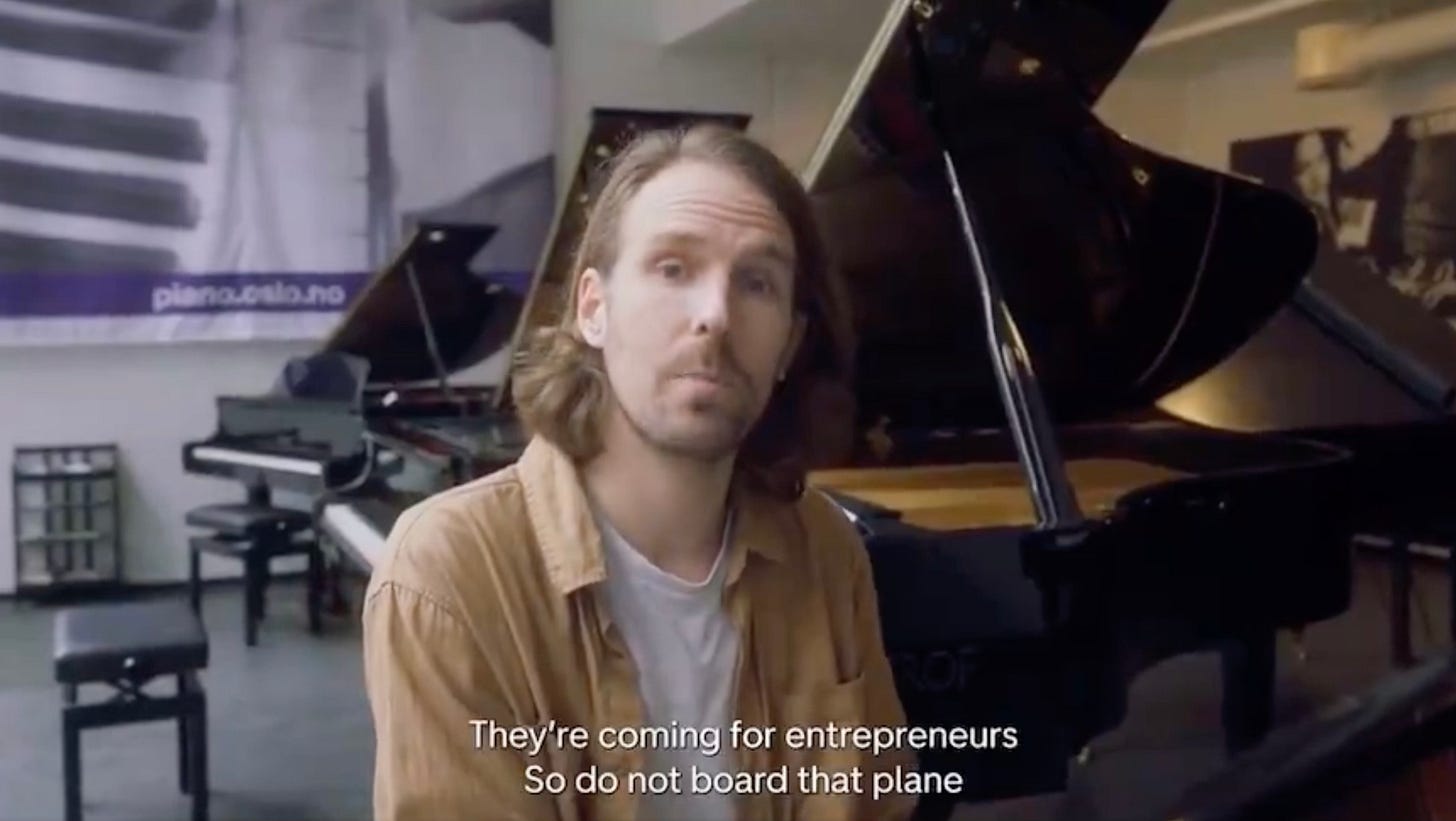Exploring the Norwegian Innovation- and Startup-Ecosystem
After writing about the innovation and startup ecosystem of Sweden (Stockholm), Finland (Helsinki) and Estonia (Tallinn), I finally had the opportunity to explore Norway (Olso).
This is MadeMeThink – A Weekly Publication with Curated Content for Visionaries, Innovators & Critical Thinkers Exploring the World of Tomorrow. Written by Prof. Thomas Metzler, Ph.D.
This MadeMeThink…
I'm back... After a long summer holiday and a break from writing, I'm back at it again. I've been travelling a lot over the last few weeks. The (new) north has caught my interest. After writing about the innovation and startup ecosystem of Sweden (Stockholm), Finland (Helsinki) and Estonia (Tallinn), I finally had the opportunity to explore Norway (Olso). Norway had been on my travel list for some time, I'd already booked flights in 2020, but then Covid hit... but well, better late than never.
The Norwegian Startup Landscape
Norway - with a population of around 5.3 million - is home to approximately 3,000 startups, with Oslo standing out as the country's hub of entrepreneurial activity. In fact, Oslo has become Europe’s 4th fastest-growing capital city over the past decade. According to Os!o Business Region, the city hosts nearly 2,000 startups and 200 scaleups. Norway has produced seven unicorns, including notable companies like Gelato (on-demand print platform), ReMarkable (next-generation paper tablet) and Kahoot (edtech startup; for more see article “meet the Norwegian tech stars”). In the European Startup Ecosystem ranking, Norway climbed from 22nd place in 2020 to 14th in 2024, securing 25th place globally (Sweden: 6th place; Estonia: 12th place; Finland: 14th place, Austria: 26th place).
Focus on Impact and Sustainability
The Nordics are recognized as the most impact-focused region globally, with 38% of all startup funding going toward impact-driven businesses. This figure surpasses Europe’s average of 22% and is significantly higher than the less than 10% seen in the US and Asia, according to data from Dealroom.
It seems like no surprise that Norway is pursuing a green transition, given its current reliance on the petroleum industry (accounts for 24% of Norway's GDP; other big industries are shipping and aquaculture = a lot of salmon farming). The state is actively steering the country towards greener practices (e.g. around 80% of all new cars registered for Norwegian roads were electric cars due to government benefits).
A unique feature of Norway’s wealth is the Government Pension Fund Global, commonly known as the “Oil Fund”:
“As of August 2024, it had over US$1.71 trillion in assets, and held on average 1.5% of all of the world's listed companies, making it the world's largest single sovereign wealth fund in terms of total assets under management. This translates to over US$307,000 per Norwegian citizen.” - Wikpedia
That really is an incredible store of value 👀🤯 In the Crytpo space they would say generational wealth 😅🤷♂️




Challenges for Founders
The Exit Tax
While Norway benefits greatly from its natural resources, many founders I spoke to expressed concern about the country's high taxes. Recently, the introduction of an "exit tax" has raised further worries within the startup community. This exit tax, which amounts to 37.84%, applies when founders or shareholders move their tax residency outside of Norway, forcing them to pay taxes on unrealized capital gains, even if the shares are not sold. This can be particularly burdensome for startup founders, as it creates financial pressure before any actual liquidity event occurs. The startup community fears that such measures could discourage entrepreneurs from establishing and growing their businesses in Norway, as the tax can be seen as a disincentive for international expansion.
There is even a popular song called “Don't come to Norway” that addresses the exit tax. Below you find an excerpt from the lyrics. The song is really well done and worth listening to 😅😅
“Don’t come to Norway if your skills are really great.
They will seize your private property if they want it for the state.
If you’re good at technology or business, please stay out.
A booming public sector is what this country is about.Don’t come to Norway.
Sing a song to Norway, we’re a ship about to sink.
Keep the brain drain going long enough, there’ll be no one left to think.
One day our oil fund will run out all talent will be gone.
At least we’ll still have taxes and this sad, depressing song.
This country had such promise, think of what we could have been.
But it took just one election to fuck up our startup scene.”
- Lyrics from the Song “Don’t come to Norway”
Listen to the song here on X or here on Linkedin (sorry, could not find a YouTube Version to embed).
Work-Life Balance and Decision-Making in Norway
Norway is known for its strong work-life balance culture. The standard workweek is 40 hours, including lunch breaks, which translates into 37.5 hours of actual work. Overtime is rare, with most employees adhering to strict work hours. I wondered what it is like in startup teams and whether founders there also call it a day at 4 pm. But I have received rather mixed answers on that, so no final conclusion yet. However, it is clear to me that when hiring in Norway, entrepreneurs must pay attention to this.
I also found it interesting how consensus-orientated the Norwegian workplace culture is. Decisions are typically made after consulting with all team members, regardless of hierarchy. This inclusive approach can lead to slower decision-making but fosters a strong sense of team cohesion and respect across all levels of the organization.
Some Observations
Norway was fascinating. A few things that really struck me. For example, it's common to see people walking around without umbrellas, even in the rain - which shows how weatherproof Norwegians are. People also sit outside in cafés, even when it's cold and rainy - something I haven't seen anywhere else in the world to this extent. This resilience seems to have been instilled in Norwegians from an early age, as Norwegian children play outside in all weathers, even in kindergarten.
Purchasing alcohol in Norway is quite regulated. Alcohol stronger than 4.7% can only be bought at "Vinmonopolet," a state-controlled monopoly. This has led to interesting adaptations by breweries, with brands like Heineken adjusting their alcohol content to fit within the 4.7% limit for general store sales. I was also surprised to discover that wine is often sold in 3-liter boxed packages, which seems shocking to many from Central Europe. However, this method is practical for them, Norwegians have assured me, as the wine stays fresh for months and offers better value for money. Differences such as these in consumer behaviour highlight how important it can be to adapt business strategies to local markets in Europe.
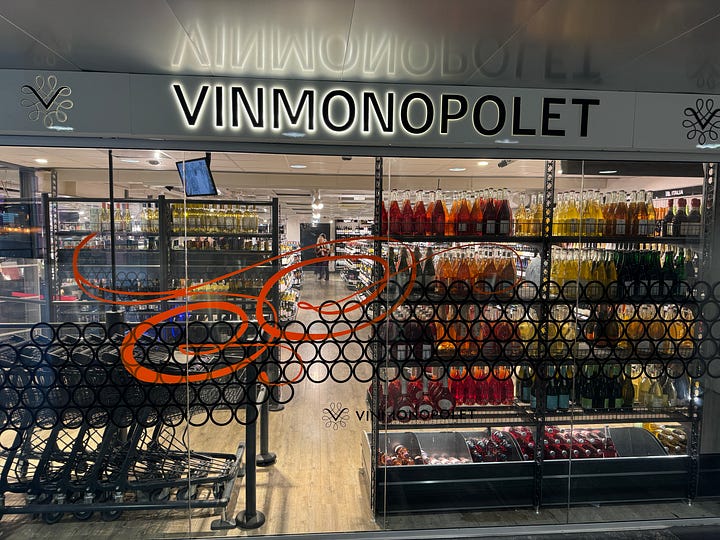



If you ever have the chance to go to Norway, definitely do it. Oslo is an incredibly beautiful city. I've spent a lot of time walking around and enjoying the scenery (see pics below). Architecturally, Oslo really has a lot to offer 👀

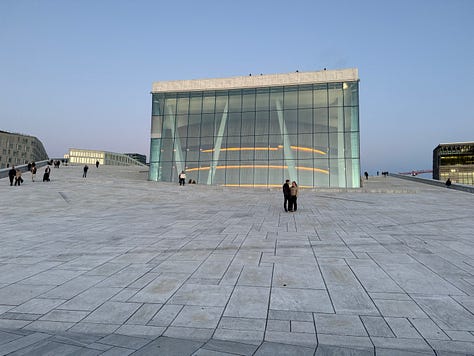





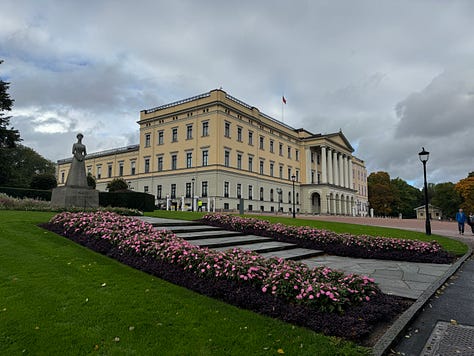

The food in Oslo is also delicious... I ate my way through a wide variety of fish dishes. Definitely worth a try.
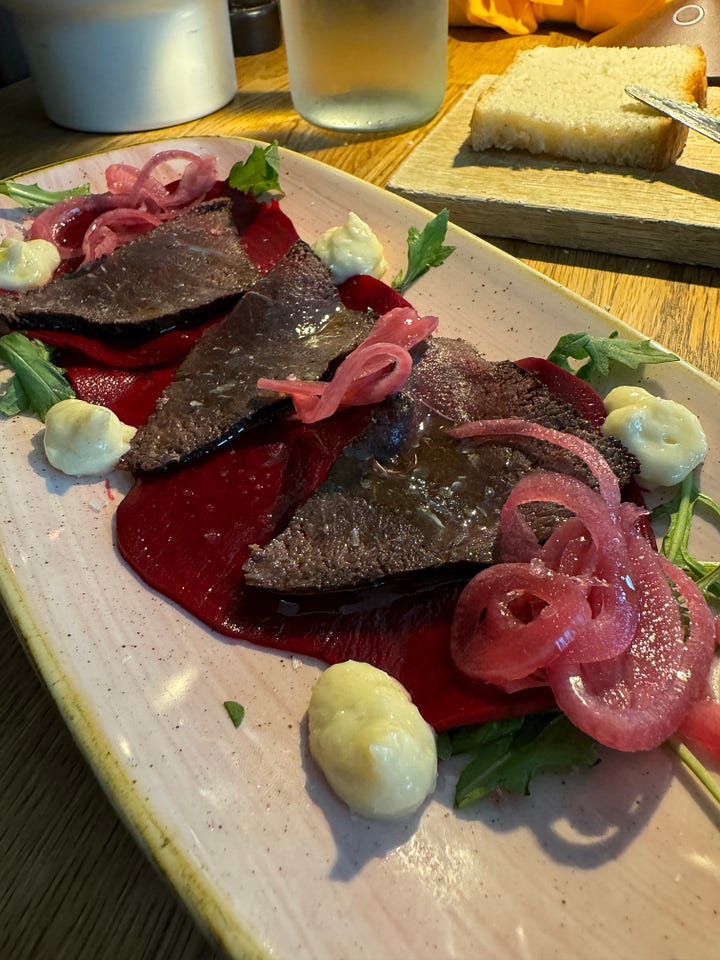
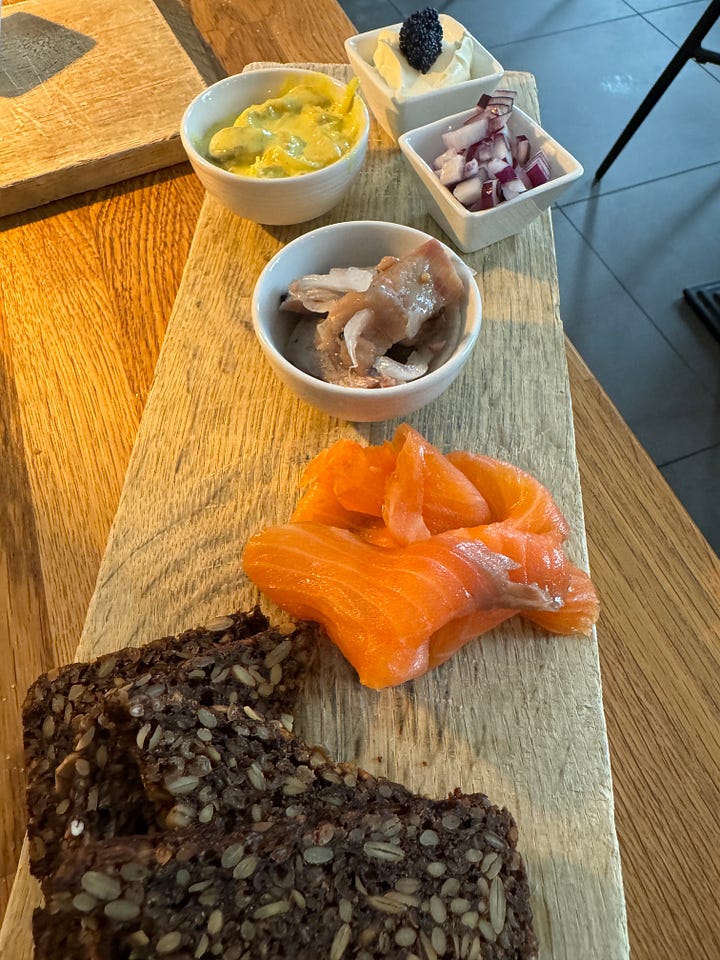
However, I have not only developed my culinary skills, but also my knowledge. I visited the Oslo Innovation Week on site, but more about that in my next issue of MadeMeThink... 👀🔥
Shoutout to Advantage Austria
Last but not least: My trip to Oslo could not have taken place without the excellent support of Advantage Austria. A big thank you to Martin Glatz, Peter Mangel and Eike Simons from the Advantage Austria Oslo team for the excellent care and support before and during this trip.
For those who don't know Advantage Austria, it is the trade promotion organization of the Austrian Federal Economic Chamber. With over 100 offices in 70 countries, Advantage Austria supports businesses from Austria in their global ventures. After the United States, Austria has the second largest trade promotion organization in the world 👀🔥
So Austrian companies can rely on the experts at Advantage Austria to support their export efforts. Each organization can take advantage of eight hours of advice per country free of charge. I have already taken advantage of this support for my own startup projects, because it is super helpful to have an expert in the respective country you are aiming for and to get their opinion on your plans. So take a look at Advantage Austria's services if you have a company in Austria and operate internationally.
Book me as your keynote speaker: If you found this article insightful and you’re looking for an engaging keynote speaker to elevate your next event, I invite you to discover more about my keynote topics and speaking engagements. If you have any questions, feel free to contact me.
Sharing is caring! If you've enjoyed this read, please spread the word to a friend. Your support is invaluable! Referrals = more readers = more time for me to write articles = better quality of the insights you receive (+ good karma). And I'm sure your friend will appreciate your recommendation too. I certainly appreciate it very much!
Disclaimer: The thoughts published in this publication are my personal opinion and should not be considered as investment advice or a recommendation for any type of action. I am not a financial expert. The startups, organizations or corporates highlighted in this publication have caught my interest. This mention is not an endorsement or recommendation to engage with them. Readers should always do their own research.


